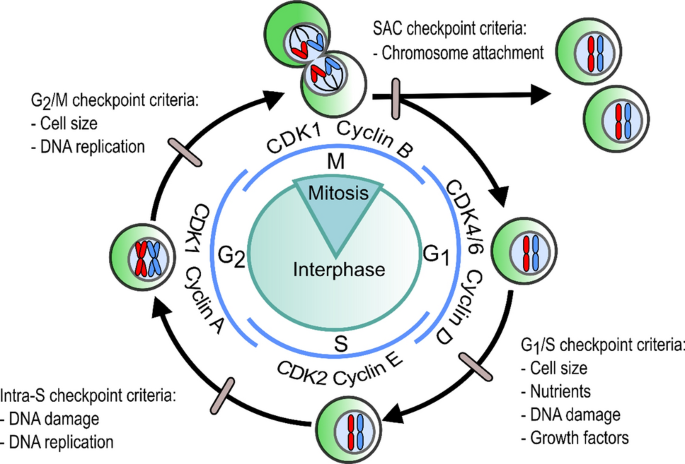-

The Cell Cycle and Its Regulation
The cell cycle is a series of events that occur as a cell grows and divides into two daughter cells. It can be divided into two main stages: interphase and the mitotic phase. Interphase can be further divided into three stages: G1, S, and G2. During interphase, the cell grows and carries out necessary biosynthetic…
-

Cell cycle regulatory proteins
I. Introduction II. Cyclin-dependent kinases (CDKs) III. Cyclin-dependent kinase inhibitors (CKIs) IV. Retinoblastoma protein (Rb) V. Tumor protein p53 (p53) VI. Conclusion
-

Proteins
Proteins are crucial biomolecules that perform a vast range of functions in living organisms, from providing mechanical support to catalyzing chemical reactions and protecting against pathogens. Composed of amino acids linked by peptide bonds, proteins come in various types, each with specific roles and characteristics. Structural proteins, such as collagen and elastin, provide support and…
Categories
- Anatomy (9)
- Animal Form and Functions (38)
- Animal Physiology (65)
- Biochemistry (33)
- Biophysics (25)
- Biotechnology (52)
- Botany (42)
- Plant morphology (6)
- Plant Physiology (26)
- Cell Biology (107)
- Cell Cycle (14)
- Cell Signaling (21)
- Chemistry (9)
- Developmental Biology (36)
- Fertilization (13)
- Ecology (5)
- Embryology (17)
- Endocrinology (10)
- Environmental biology (3)
- Genetics (59)
- DNA (27)
- Inheritance (13)
- Histology (3)
- Hormone (3)
- Immunology (29)
- life science (76)
- Material science (8)
- Microbiology (18)
- Virus (8)
- Microscopy (18)
- Molecular Biology (113)
- parasitology (6)
- Physics (3)
- Physiology (11)
- Plant biology (26)
- Uncategorized (7)
- Zoology (112)
- Classification (6)
- Invertebrate (7)




